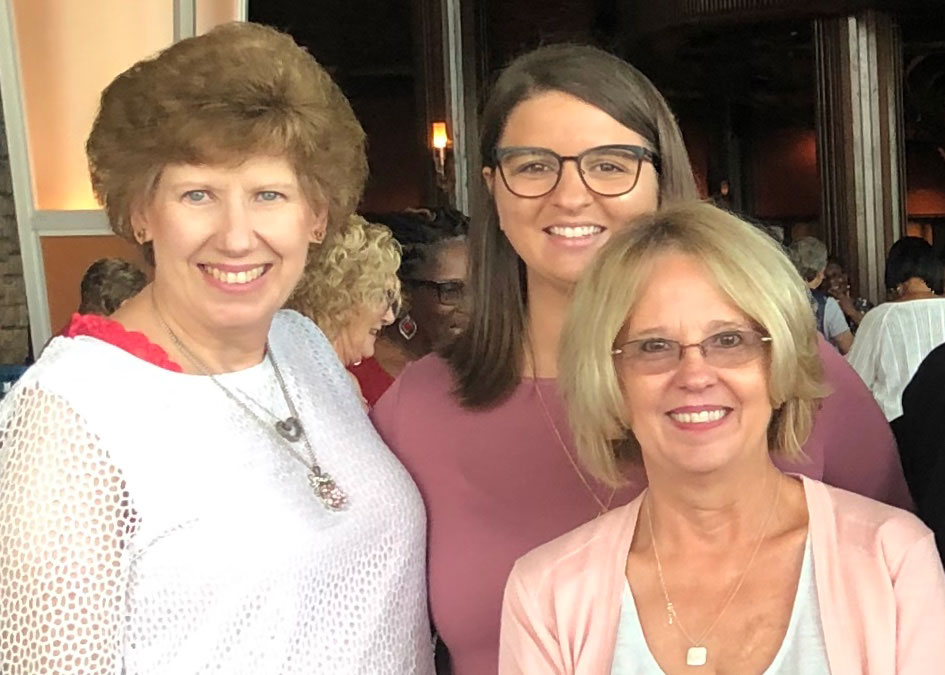
According to the American Cancer Society, the number of cancer cases is rising due to an aging and growing population. Fortunately, they also point out that the number of cancer survivors is also increasing thanks to improved treatment as well as early detection. But survival is not the end of the story for cancer survivors. Many still face challenges both during and after treatment.
We can all support cancer survivors in different ways. The first step is understanding that the challenges they face don’t end with treatment. You can do your part by simply letting them know you’re there for them. We’re doing ours by providing breast cancer navigators to patients who need them.
Let’s look at:
- The challenges facing cancer survivors
- How you can support cancer survivors
- What Evansville Surgical Associates is doing to support cancer survivors
- Resources to help support cancer survivors
The challenges facing cancer survivors go beyond treatment as they face physical, emotional, and financial challenges. By lending our support, we help ease those burdens and let them know that they’re not alone.
The Challenges Facing Cancer Survivors
Whether a person’s cancer is in remission or they’re just starting treatment, those battling cancer are fighting more than a disease — they’re fighting to regain their way of life. This is because cancer does more than attack their body. It also impacts how they live. The effects of treatment and recovery leave survivors feeling tired and unable to immediately return to the life they once enjoyed.
This can be difficult to understand when you’re part of a support system. It’s easy to make the mistake that the hard part is over once treatment ends; however, the truth is that cancer survivors can’t simply jump back into their old way of life. In fact, they now must face emotional, physical, and even financial struggles, often with a dwindling support system.
That’s why your continued help is so important. Through your support, cancer survivors can keep getting the help they need with daily tasks they used to do easily. On top of that, you’ll be helping them fight the isolation and frequent depression that can occur during treatment and recovery.
How You Can Support Cancer Survivors
You may not think you can do much to support cancer survivors. Fortunately, it’s often the simplest things that make the biggest difference. Studies show that cancer survivors with strong emotional support systems tend to be more positive, have an easier time adjusting, and have an overall better quality of life.
One of the best things you can do for a loved one with cancer is to stay in contact. Send them notes regularly and call them if they’re feeling up to it. Make sure to return any messages they send you as soon as possible, let them know you’ll communicate with them again soon, and always follow through with that promise.
You should also visit them regularly while also practicing social distancing. Cancer is isolating for a lot of survivors and your presence can be a welcome distraction. However, there are a few ground rules you should follow before visiting:
- Always call beforehand to see if it’s okay to visit
- Keep your visits short and regular rather than long and sporadic
- Visit at times other than weekends or holidays when they may have family there
- Always mention your next visit before leaving so they have something to look forward to
Another important guideline is to leave if the family asks you to. This isn’t a judgment against you. Remember that they have their family member’s best interests at heart and are simply looking out for them.
Good conversation is very important for cancer survivors. However, it can be difficult to know what to talk about during such a trying time. Keep in mind that what you say isn’t nearly as important as being there and listening. Let them know you’re willing to listen to how they’re feeling or to simply sit in silence if that’s what they would prefer.
What Evansville Surgical Associates Is Doing to Support Cancer Survivors
Here at Evansville Surgical Associates, we believe in being with you every step of the way. That’s why we started our navigators program for breast cancer patients. Navigators act as advocates and guides for breast cancer patients by providing much-needed information and support.
Our breast cancer navigators are also cancer survivors. This means that they can empathize with patients through every step of the treatment process. While all of our staff is available and ready to provide advice to patients with cancer, our breast cancer navigators bring a level of experience many others can’t.
Many patients who come through our doors are unaware that they will be assigned a breast cancer navigator. It can be a huge relief to learn that you’re not alone as you go through:
- Consultations
- Mammograms
- Surgery
- Financial questions
- Follow-ups
A breast cancer navigator will be with them and their surgeon as they review diagnostic images and test results. They’ll let patients know what the next steps are, as well as what to expect from surgery.
This process can look different depending on what those next steps are. For example, a patient may be advised to get genetic testing or a mammogram. In these cases, the navigator will actually set up those tests and make any necessary appointments for them. They will also follow up with patients and help them understand what the tests mean and why they’re necessary.
Our navigators help ensure that patients are prepared for whatever comes next. This includes the type, date, and time of procedures, as well as what to expect before, during, and after. They will also help patients understand the importance of pre-op visits and everything else our staff recommends as treatment.
Oncological Procedures Available at Evansville Surgical Associates
At Evansville Surgical Associates, we’re dedicated to providing the most comprehensive surgical care available. Our oncological procedures include:
- Lung cancer
- Lymph nodes
- Breast cancer
- Melanoma and other types of skin cancer
- Endocrine Malignancies – Includes thyroid, parathyroid, pancreas, and adrenal cancers
- Gastrointestinal Cancer – Includes cancer of the esophagus, stomach, small intestines, colon and rectal
At Evansville Surgical Associates, you can rest easy knowing that you will be treated by our team of board-certified and fellowship-trained surgeons. We’ll be with you every step of the way, including diagnosis, surgical treatment, and follow-up care for a wide range of malignant and benign tumors.
Resources to Help Support Cancer Survivors
There are many wonderful organizations to help you support cancer survivors. To learn more about how you can support cancer survivors in the Evansville and tri-state area, check out:
Groups like these are a fantastic resource for education, events, and volunteer opportunities to support cancer survivors in our community!
Final Words
The challenges facing cancer survivors aren’t limited to the disease itself. That’s why it’s so important to support cancer survivors in any way that you can. We’re doing our part by providing breast cancer navigators for all of our patients who need them. You can do your part by being consistent in survivors’ lives and letting them know that you’re there for them.
Evansville Surgical Associates has been providing comprehensive and compassionate surgical care for over 50 years. Call us at (812) 424-8231 or (800) 264-8231, or email us with any general questions or comments you may have. We are available from 8:00 am to 4:30 pm if you would like to schedule an appointment.



